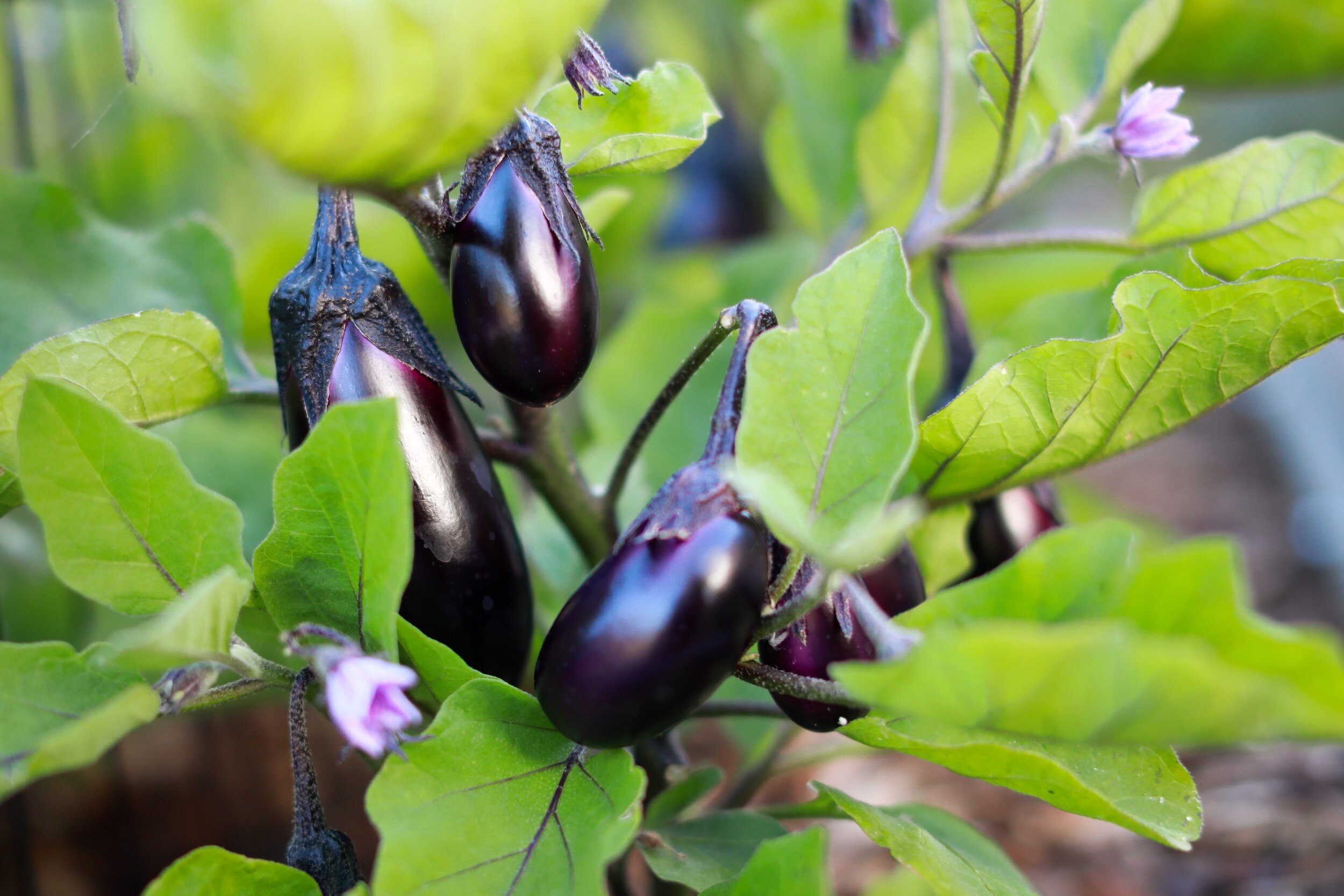
Eggplant Companion Plants: Maximizing Growth and Health
Eggplants (Solanum melongena), often referred to as aubergines, are a popular choice among gardeners due to their versatility in culinary applications and their striking appearance. However, like many plants, eggplants can benefit significantly from companion planting. This article will delve into the concept of companion planting, explore the best companion plants for eggplants, and provide a comprehensive guide to optimizing your eggplant garden.
What is Companion Planting?
Companion planting is a gardening strategy that involves growing different plants in proximity for mutual benefit. This practice is based on the idea that certain plants can enhance each other’s growth, deter pests, attract beneficial insects, and improve soil health. Companion planting can lead to increased yields and healthier plants, making it a valuable technique for both novice and experienced gardeners.
Benefits of Companion Planting
- Pest Management: Some plants can repel harmful insects or attract beneficial predators that feed on pests.
- Soil Enrichment: Certain plants, particularly legumes, can fix nitrogen in the soil, enriching it for heavy feeders like eggplants.
- Pollinator Attraction: Companion flowers can attract bees and other pollinators, enhancing fruit set.
- Microclimate Creation: Taller plants can provide shade for more delicate plants, helping to maintain moisture levels.
- Weed Suppression: Ground-cover plants can help suppress weeds, reducing competition for nutrients and water.
Best Companion Plants for Eggplants
Eggplants are relatively adaptable and can thrive alongside various plants. Here are some of the best companion plants for eggplants:
1. Marigolds
- Benefits: Marigolds are renowned for their pest-repelling properties. They can deter nematodes, aphids, and whiteflies, which are common threats to eggplants. Additionally, marigolds improve soil health by releasing compounds that suppress harmful pathogens.
2. Bush Beans
- Benefits: Bush beans are excellent nitrogen fixers, replenishing the nitrogen that eggplants consume. They also act as a living mulch, helping to retain soil moisture and suppress weeds.
3. Peas
- Benefits: Similar to bush beans, peas can fix nitrogen in the soil. They provide a natural nutrient source for eggplants and can be planted before the eggplants to maximize space.
4. Spinach
- Benefits: Spinach has a shallow root system and grows quickly, allowing it to thrive alongside eggplants without competing for nutrients. It can also provide ground cover, reducing weed growth.
5. Basil
- Benefits: Basil is not only a culinary favorite but also a beneficial companion for eggplants. It can enhance the flavor of eggplants and repel pests like aphids and spider mites.
6. Nasturtiums
- Benefits: These vibrant flowers attract pollinators and beneficial insects while deterring aphids and whiteflies. They can also act as a trap crop, drawing pests away from eggplants.
7. Thyme
- Benefits: Thyme is a hardy herb that can thrive in similar conditions as eggplants. It can repel pests and attract beneficial insects, contributing to a healthier garden ecosystem.
Plants to Avoid Near Eggplants
While many plants can benefit eggplants, some should be avoided due to competition for nutrients or susceptibility to similar pests.
1. Other Nightshades
- Examples: Tomatoes, potatoes, and peppers.
- Reason: These plants share similar nutrient needs and are susceptible to the same pests and diseases, which can lead to concentrated infestations.
2. Fennel
- Reason: Fennel can inhibit the growth of nearby plants, including eggplants.
3. Cucumbers
- Reason: Cucumbers can compete for nutrients and space, potentially stunting the growth of eggplants.
How to Implement Companion Planting in Your Garden
- Plan Your Layout: Consider the height, spread, and growth habits of your plants. Taller plants should be placed where they won’t shade shorter plants.
- Rotate Crops: To prevent soil depletion and pest buildup, practice crop rotation by changing the location of your eggplants and their companions each season.
- Monitor Growth: Keep an eye on the growth and health of your plants. Adjust spacing and arrangements as needed to ensure all plants receive adequate sunlight and nutrients.
- Use Organic Practices: Incorporate organic fertilizers and pest management techniques to maintain a healthy garden ecosystem.
Eggplant Companion Planting Table
Here’s a summary of the best companion plants for eggplants, including their benefits:
| Companion Plant | Type | Benefits |
|---|---|---|
| Marigolds | Flower | Pest deterrent, soil health improvement |
| Bush Beans | Legume | Nitrogen fixation, moisture retention |
| Peas | Legume | Nitrogen fixation, space maximization |
| Spinach | Leafy Green | Ground cover, shallow roots |
| Basil | Herb | Flavor enhancement, pest repellent |
| Nasturtiums | Flower | Attracts pollinators, pest deterrent |
| Thyme | Herb | Pest repellent, attracts beneficial insects |
Frequently Asked Questions (FAQ)
Q1: Why is companion planting important for eggplants?Companion planting helps eggplants thrive by providing pest control, soil enrichment, and improved pollination, leading to healthier plants and better yields.
Q2: Can I plant tomatoes and eggplants together?It is generally not recommended to plant tomatoes and eggplants close together due to their shared susceptibility to pests and diseases.
Q3: What herbs are beneficial for eggplants?Basil, thyme, and mint are excellent herbs to plant alongside eggplants, as they can repel pests and enhance flavor.
Q4: Are there flowers that benefit eggplants?Yes, marigolds and nasturtiums are particularly beneficial, as they attract pollinators and deter various pests.
Q5: What should I avoid planting next to eggplants?Avoid planting other nightshades (like potatoes and peppers), fennel, and cucumbers, as they can compete for nutrients or attract similar pests.
Q6: Do eggplants need a lot of sunlight?Yes, eggplants thrive in full sun, so ensure that companion plants do not shade them excessively.
Q7: How much space should I leave between eggplants and their companions?Spacing depends on the specific plants involved. Follow recommended spacing guidelines for each plant to prevent competition.
Conclusion
Companion planting is a powerful technique that can enhance the growth and health of eggplants. By selecting the right companion plants, gardeners can create a more resilient ecosystem that promotes biodiversity, improves soil health, and minimizes pest issues. Whether you are a novice gardener or an experienced horticulturist, understanding the dynamics of companion planting can lead to a more productive and enjoyable gardening experience.For more information on companion planting and gardening practices, you can refer to the Wikipedia page on Companion Planting.


